Podczas kompletowania modeli do Kupieckiej karawany z Arabii do Warheim FS największy problem miałem z latającym dywanem. Może nieumiejętnie szukałem, a może po prostu nie ma odpowiednich fizycznych modeli, bo kilka wydruków 3D znalazłem, ale też niezbyt pasowały mi stylem. Dlatego też postanowiłem zrobić sobie model latającego dywanu sam, a poniżej znajdziecie krótką relację, w której opiszę Wam jak to zrobiłem. Dodatkowym plusem jest to, że koszt tak wykonanego modelu jest znikomy, a w końcu latający dywan będzie służył w kupieckiej karawanie. | When assembling miniatures for Merchant's Caravan from Arabia for Warheim FS, I had the biggest problem with the flying carpet model. Maybe I wasn't looking properly, or maybe there are simply no suitable physical miniatures, because I found a few 3D prints, but they didn't suit my style either. That's why I decided to make a flying carpet model myself, and below you will find a short report in which I will describe how I did it. An additional advantage is that the cost of a model made in this way is negligible, and in the end the flying carpet will be used in a merchant caravan. |
Do zrobienia modelu latającego dywanu użyłem plastycznej blaszki z tubki po kremie do golenia, którą przyciąłem do kształtu prostokąta. | To make a flying carpet miniatures, I used a metal plastic plate from a shaving cream tube, which I cut into a rectangular shape. |
| Korzystając z tępej krawędzi noża do tapet zagiąłem boki blaszki pod kątem 90 stopni. Skręciłem także ze sobą cztery kawałki drutu, otrzymując linę. | Using the blunt edge of a wallpaper knife, I bent the sides of the plate at a 90-degree angle. I also twisted four pieces of wire together to make a rope. |
| Zagięte boki blaszki posmarowałem cienką warstwą masy modelarskiej do której przyłożyłem odpowiednio przycięte fragmenty skręconego drutu, a całość skleiłem klejem cyjanoakrylowym. | I smeared the bent sides of the plate with a thin layer of plastic putty, to which I applied appropriately cut pieces of twisted wire, and glued the whole thing with cyanoacrylate glue. |
| Po wyschnięciu kleju cyjanoakrylowego rozplątałem wystające fragmenty skręconego drutu, które następnie związałem razem fragmentami drutu. | After the cyanoacrylate glue dried, I untangled the protruding pieces of twisted wire, which I then tied together with pieces of wire. |
| Kolejnym krokiem było nadanie faktury. Ponieważ blaszka, której użyłem jest bardzo plastyczna umieściłem dywan do góry nogami na fragmencie styroduru i za pomocą narzędzi do rzeźbienia wycisnąłem wzory. | The next step was to create the texture of the material. Since the metal plate I used is very plastic, I placed the carpet upside down on a piece of XPS and cut out patterns using carving tools. |
| Następnie wykorzystując uchwyty pędzelków o różnej grubości nadałem latającemu dywanowi nieco bardziej dynamiczny kształt. | Then, using brush handles of different thickness, I gave the flying carpet a slightly more dynamic shape. |
| I przykleiłem zrobiony w powyższy sposób model latającego dywanu do podstawki. | And I glued the flying carpet miniatures made in the above way to the base. |

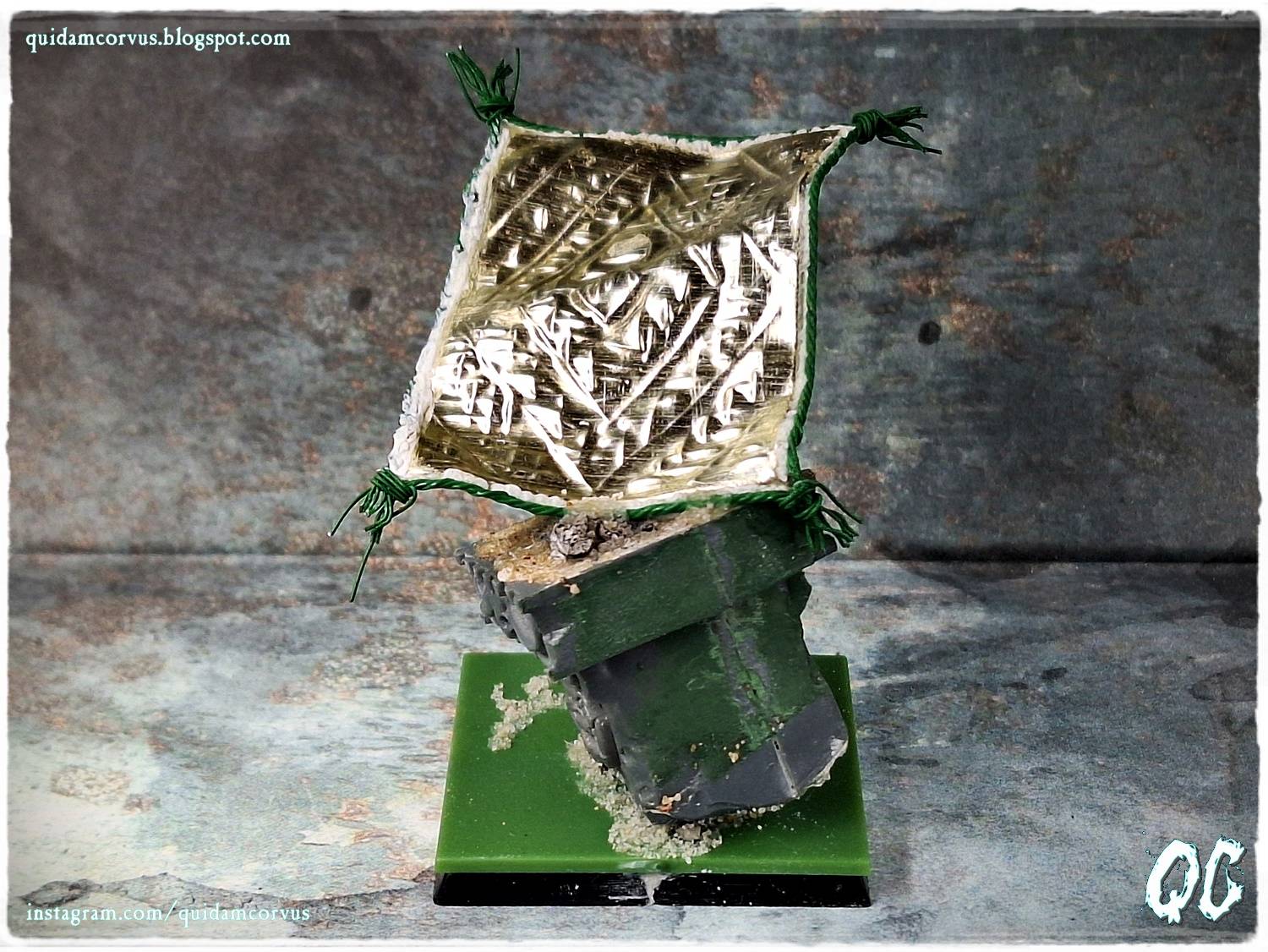
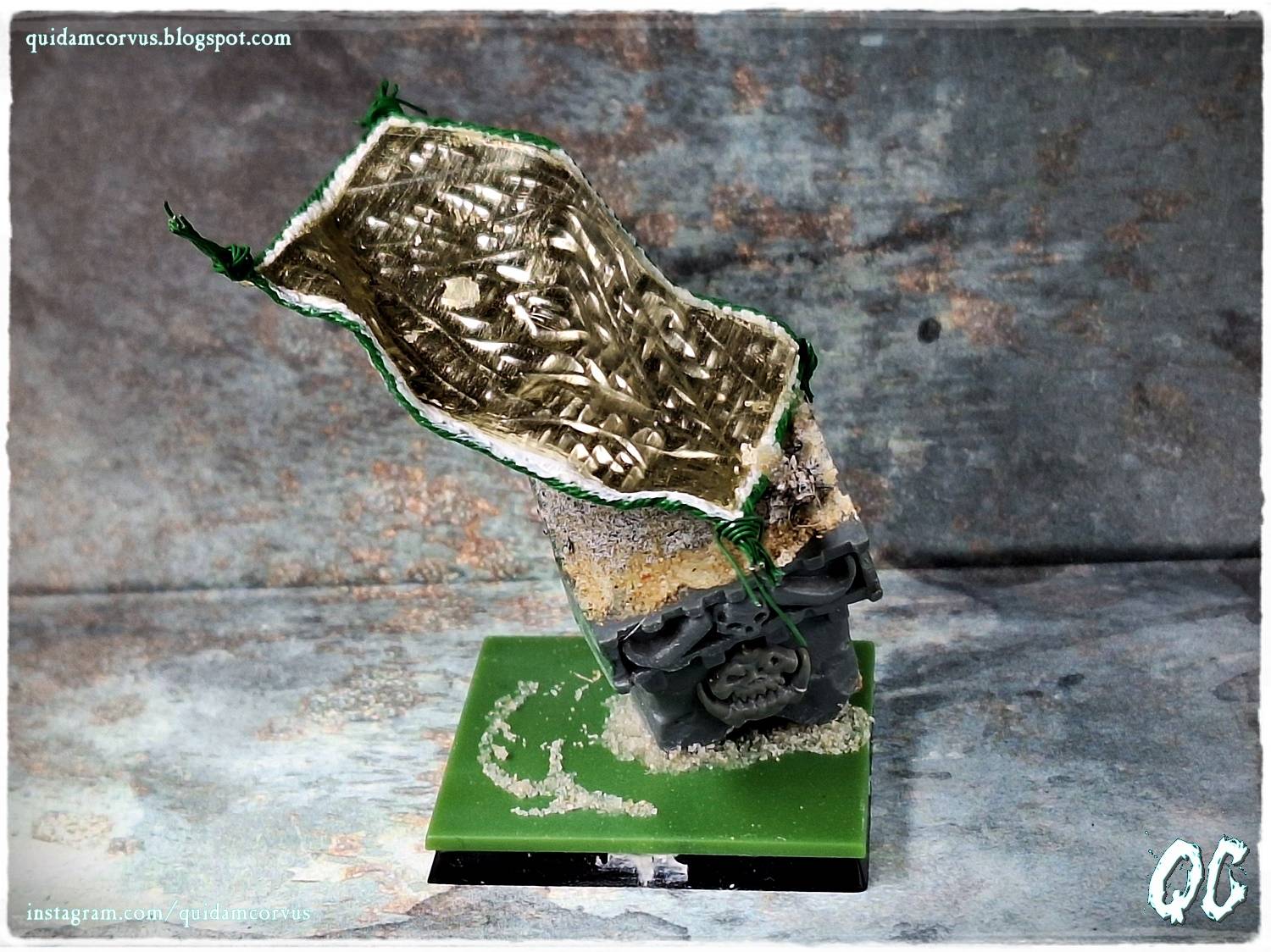
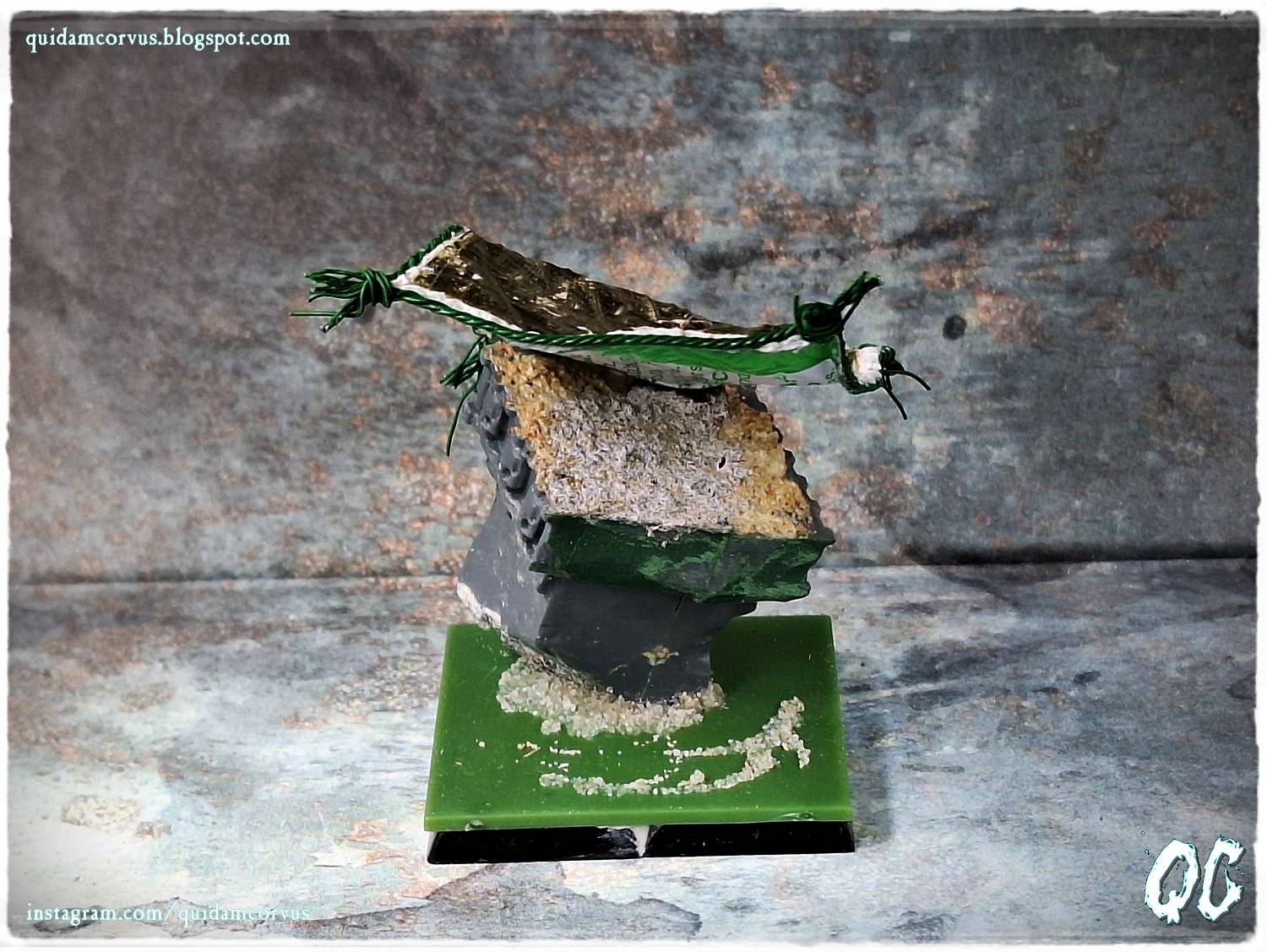
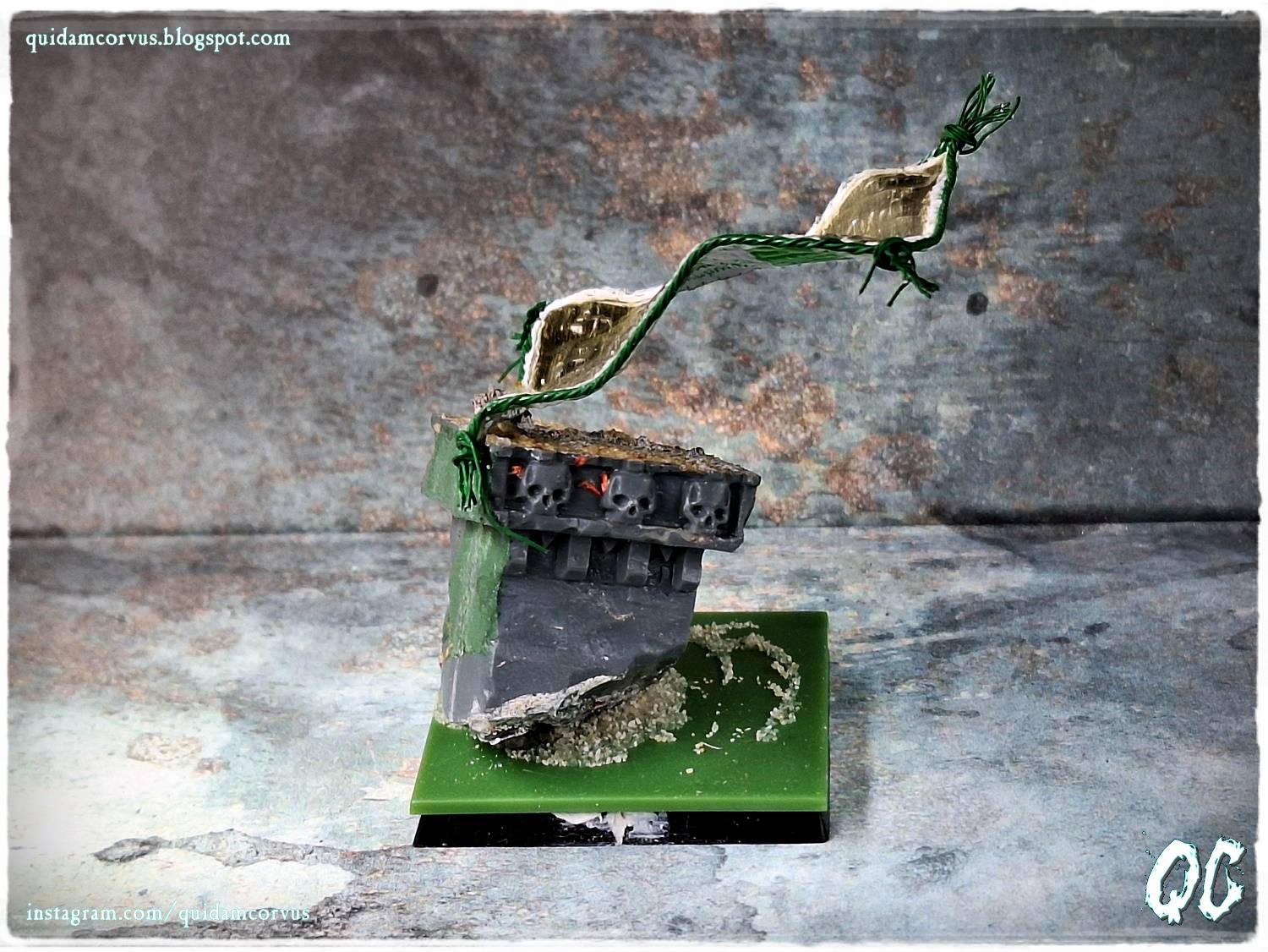
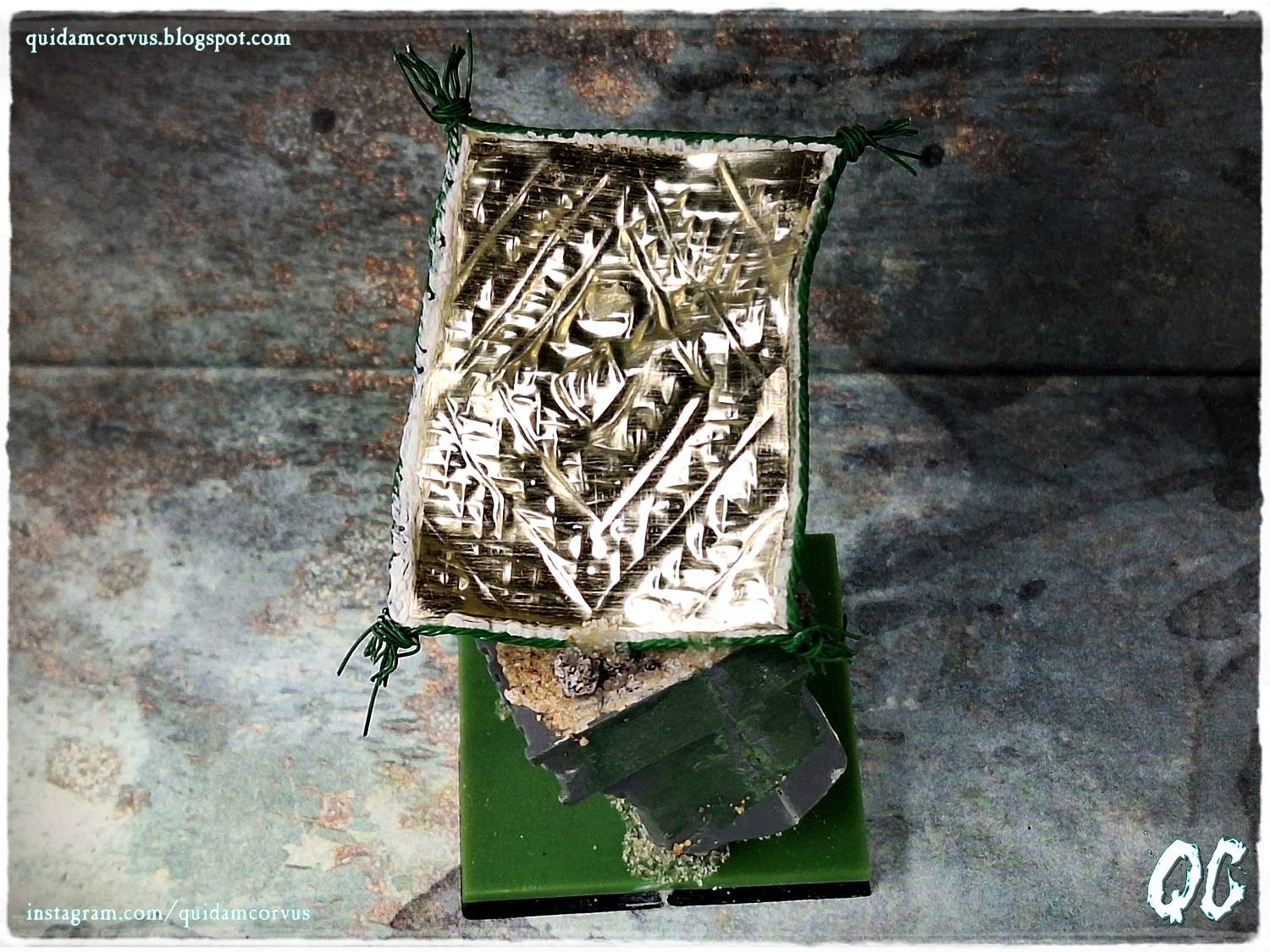
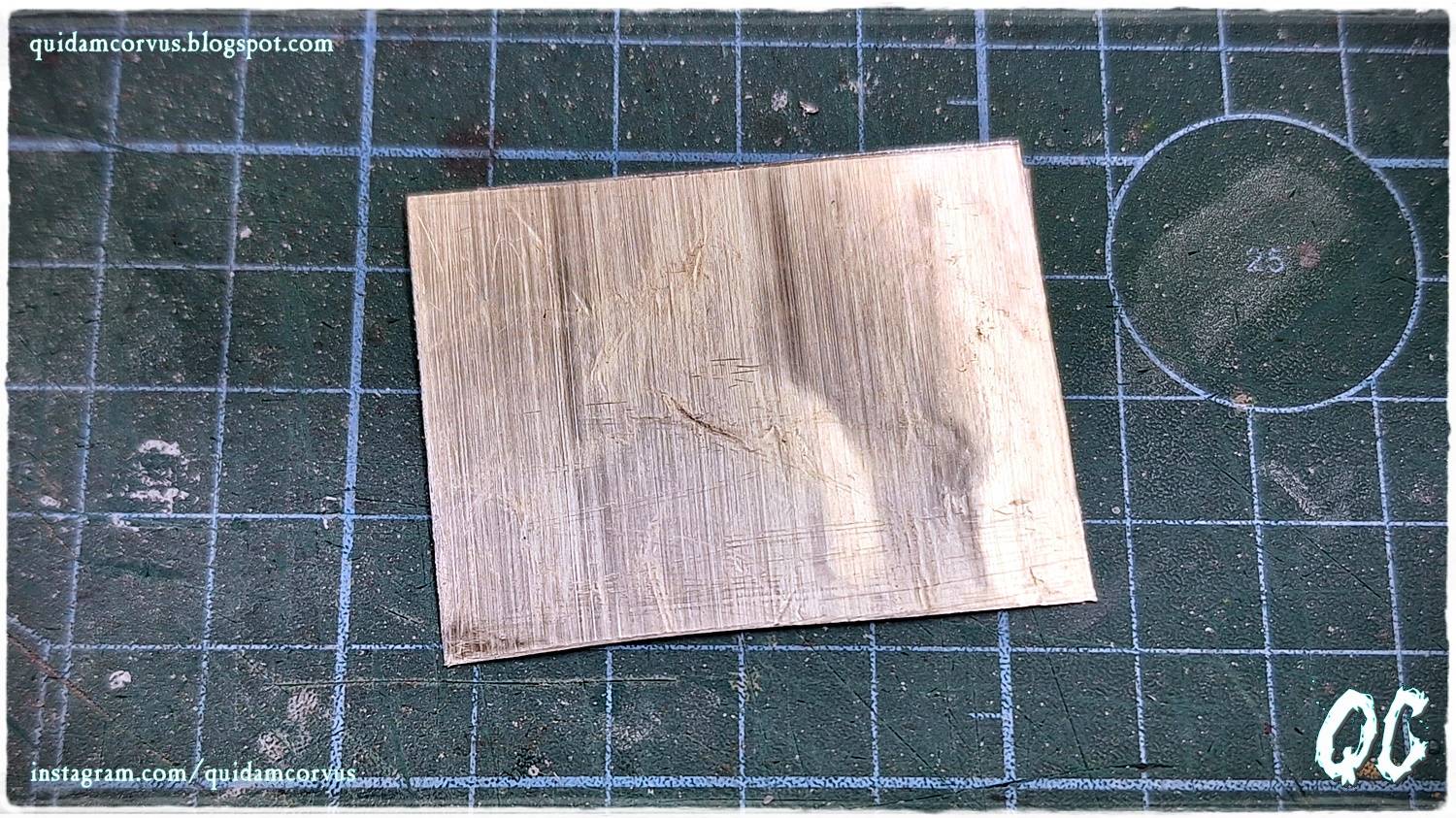

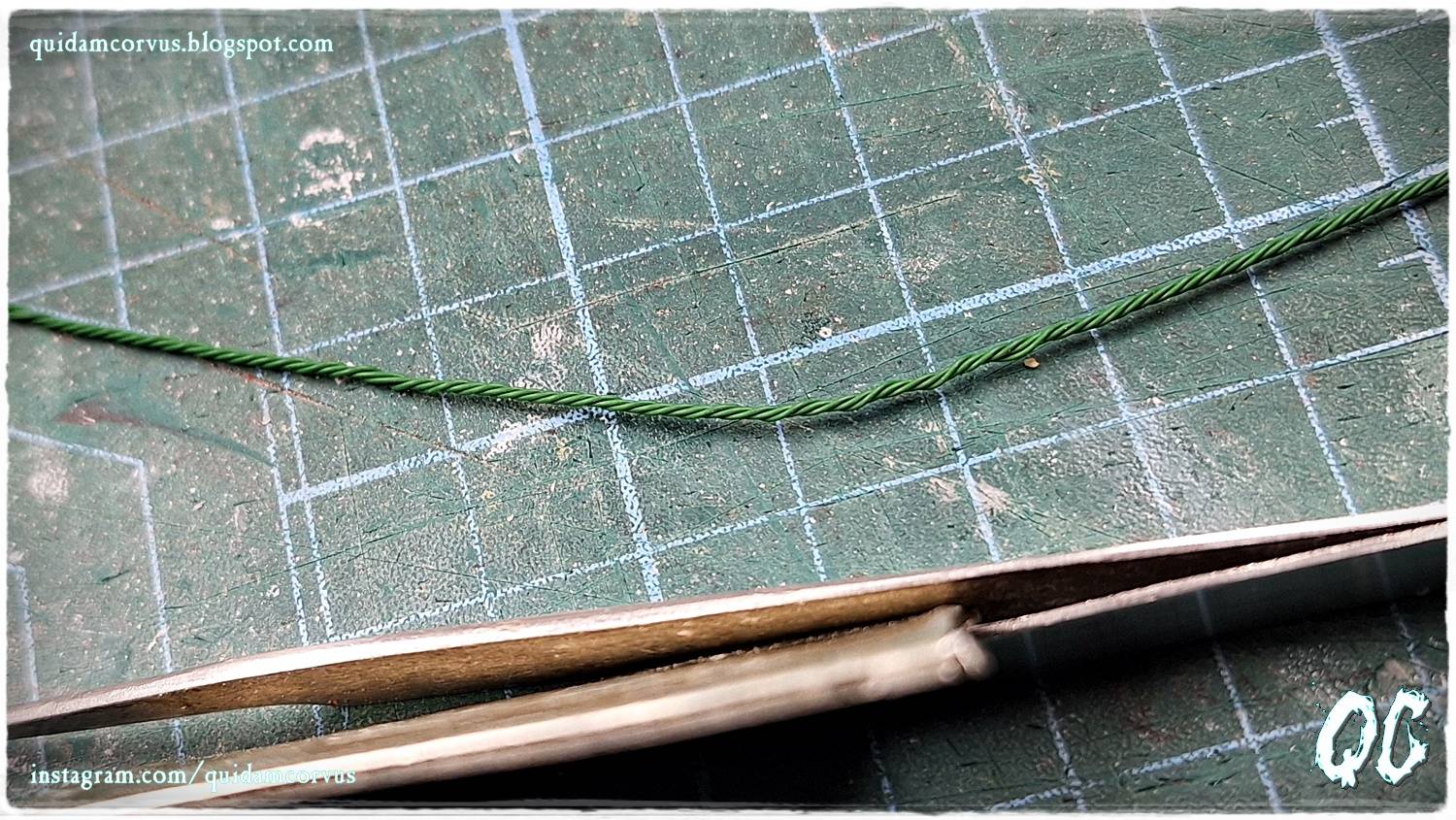
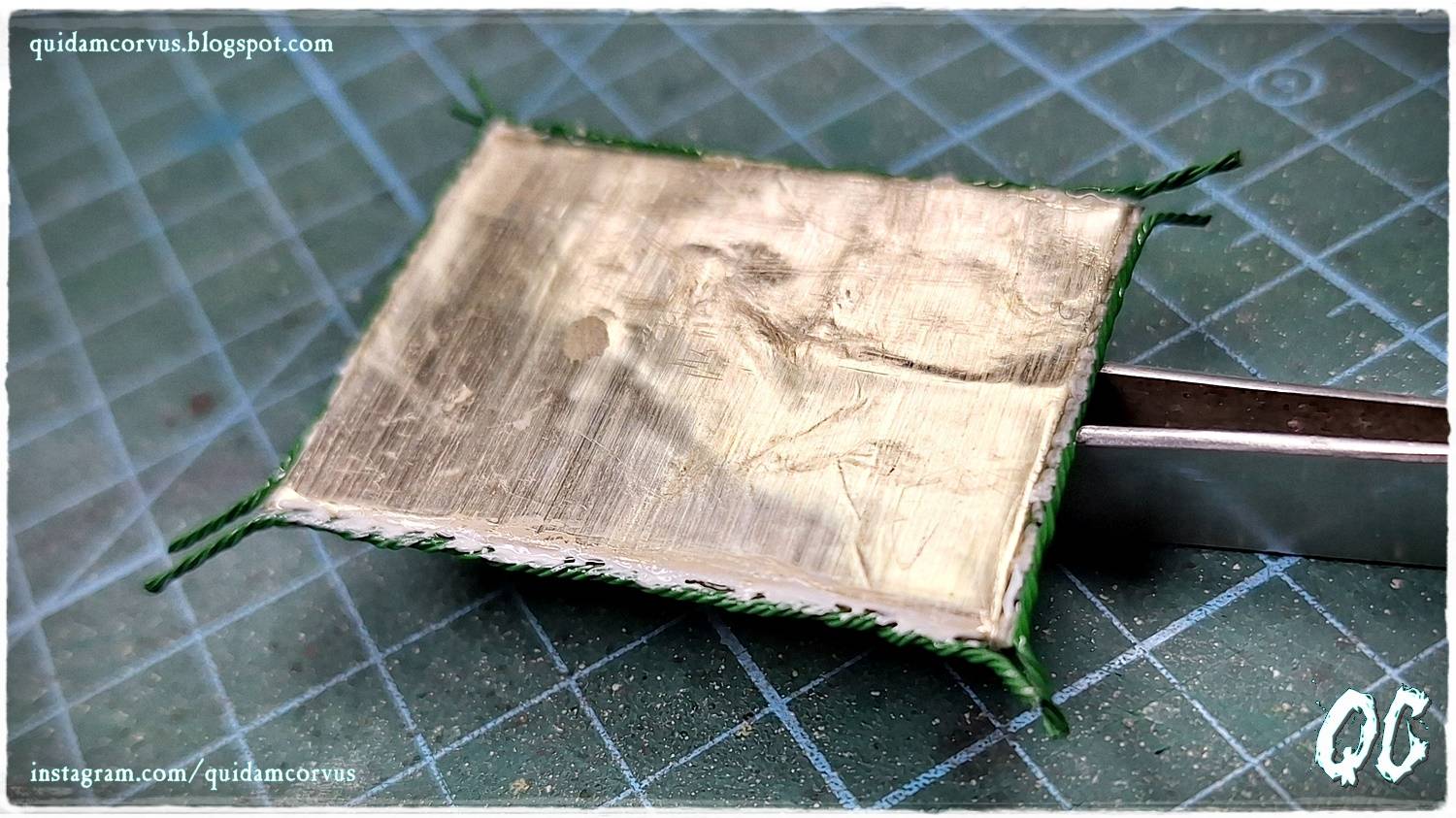
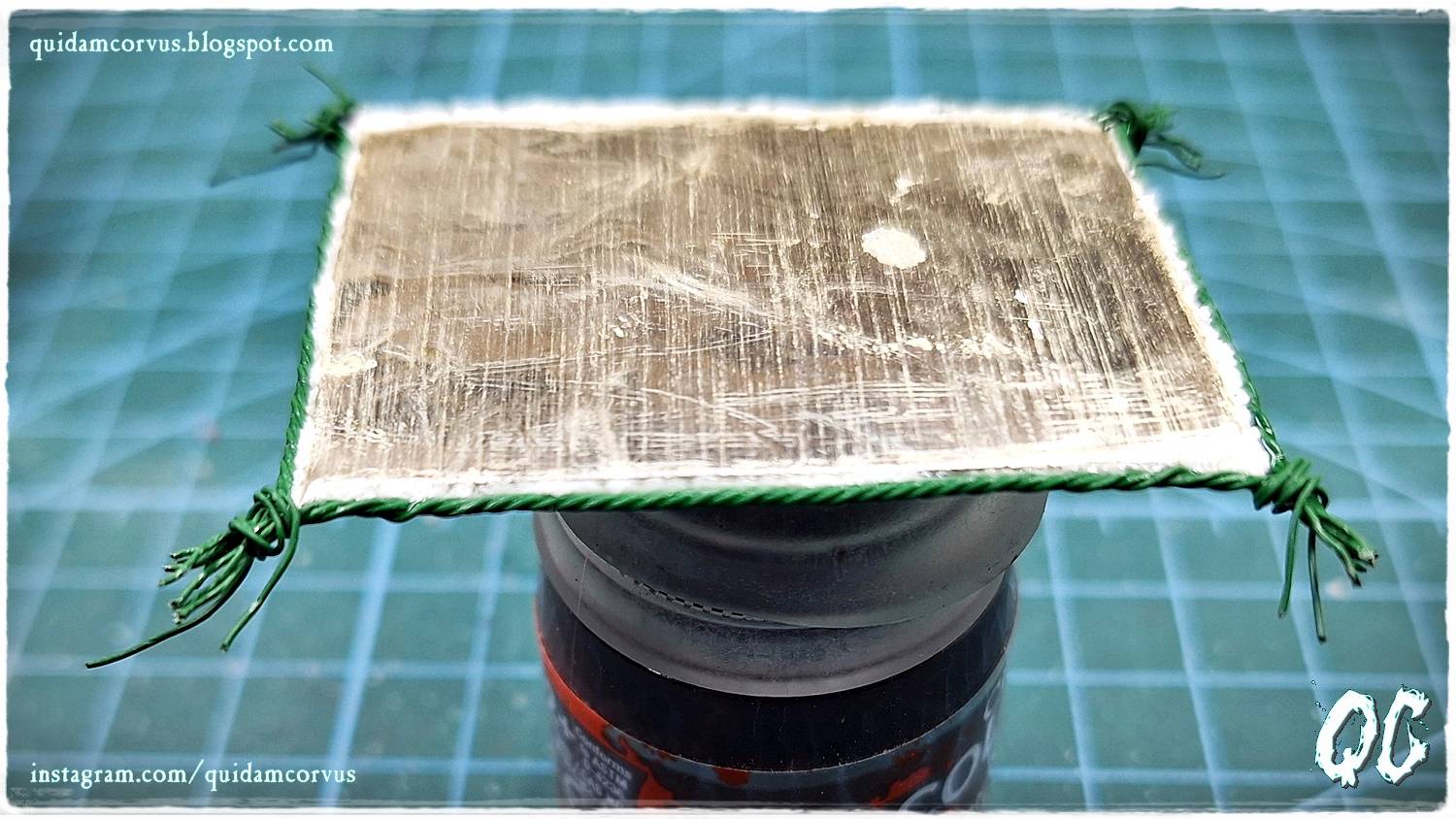
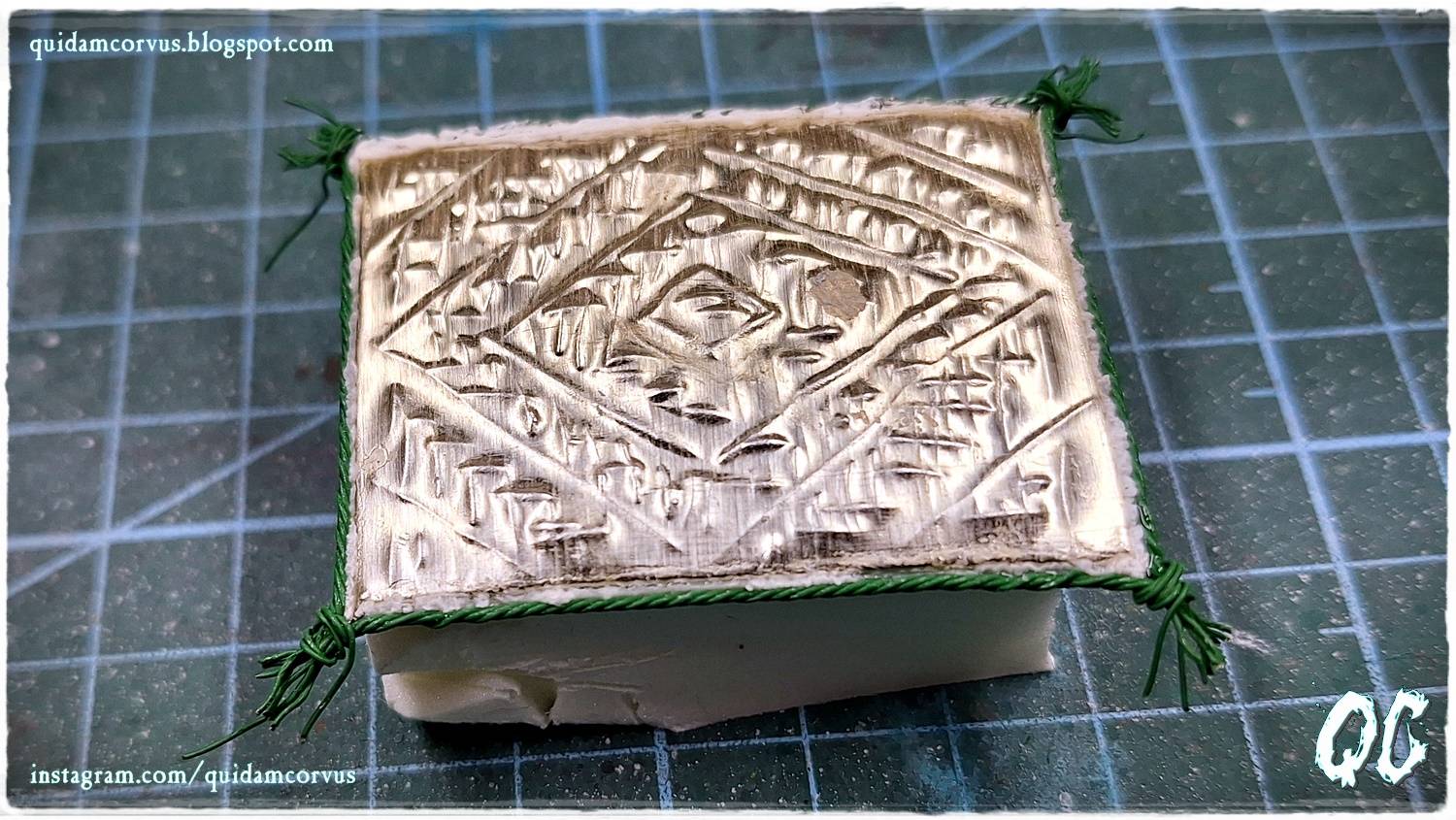
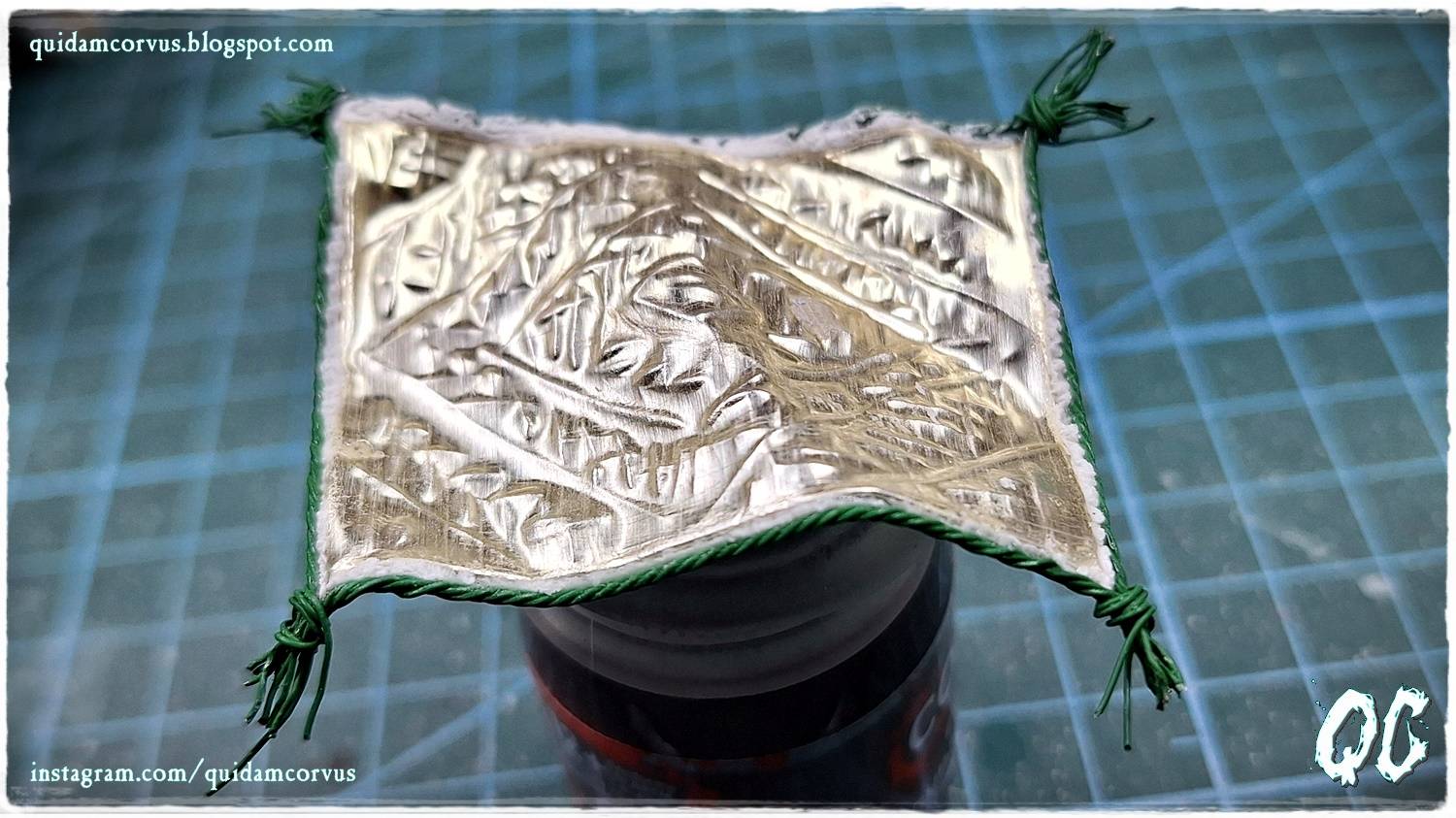
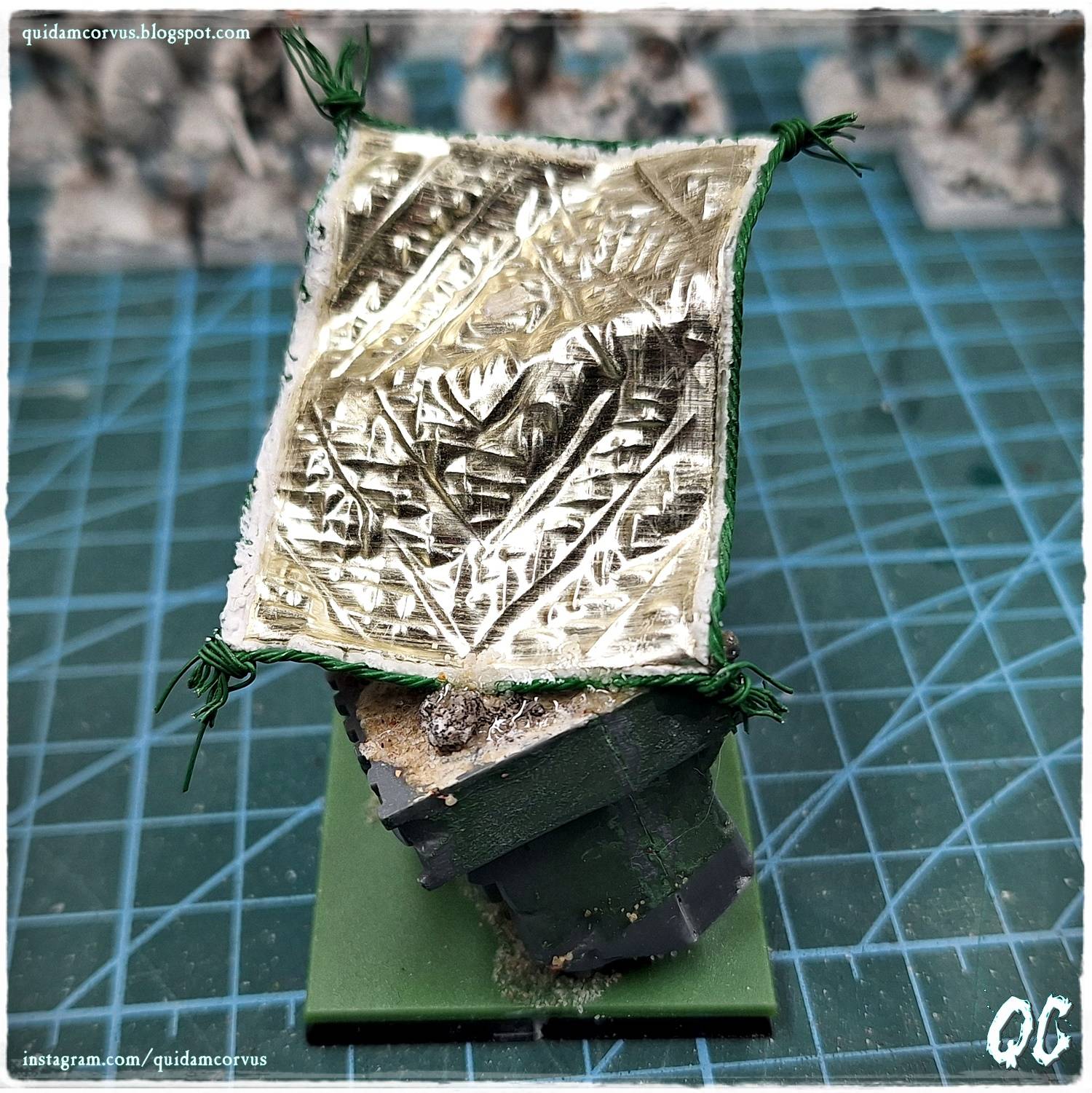
Brak komentarzy:
Prześlij komentarz